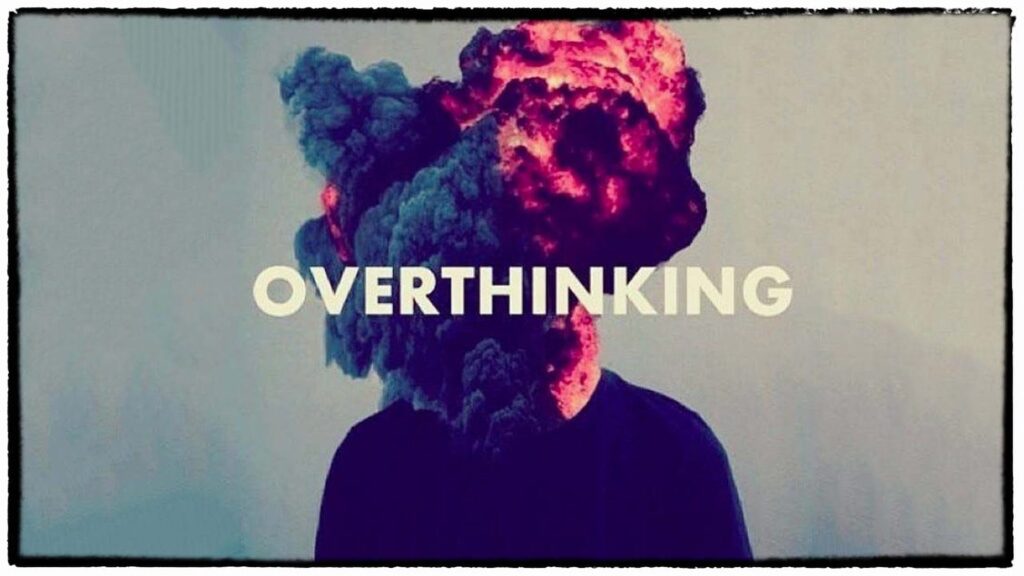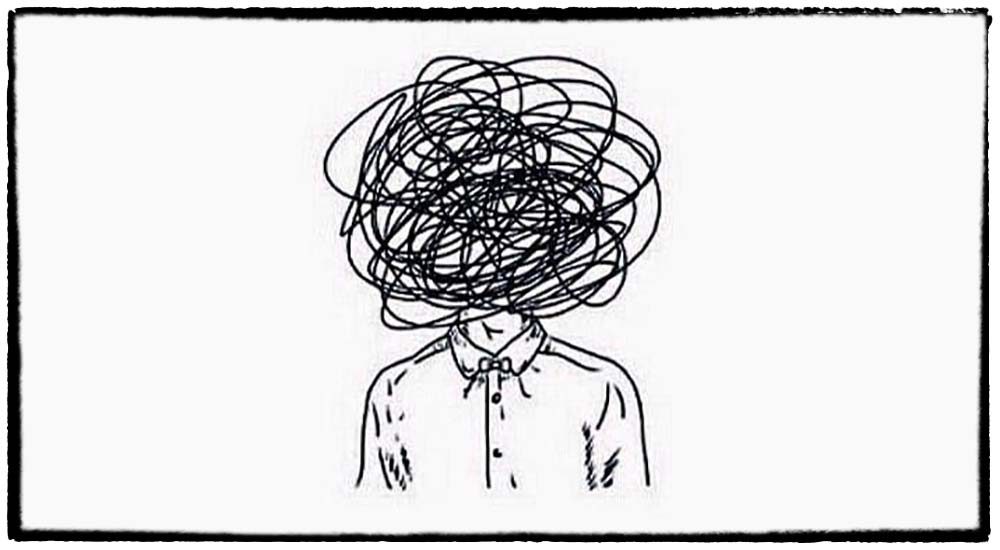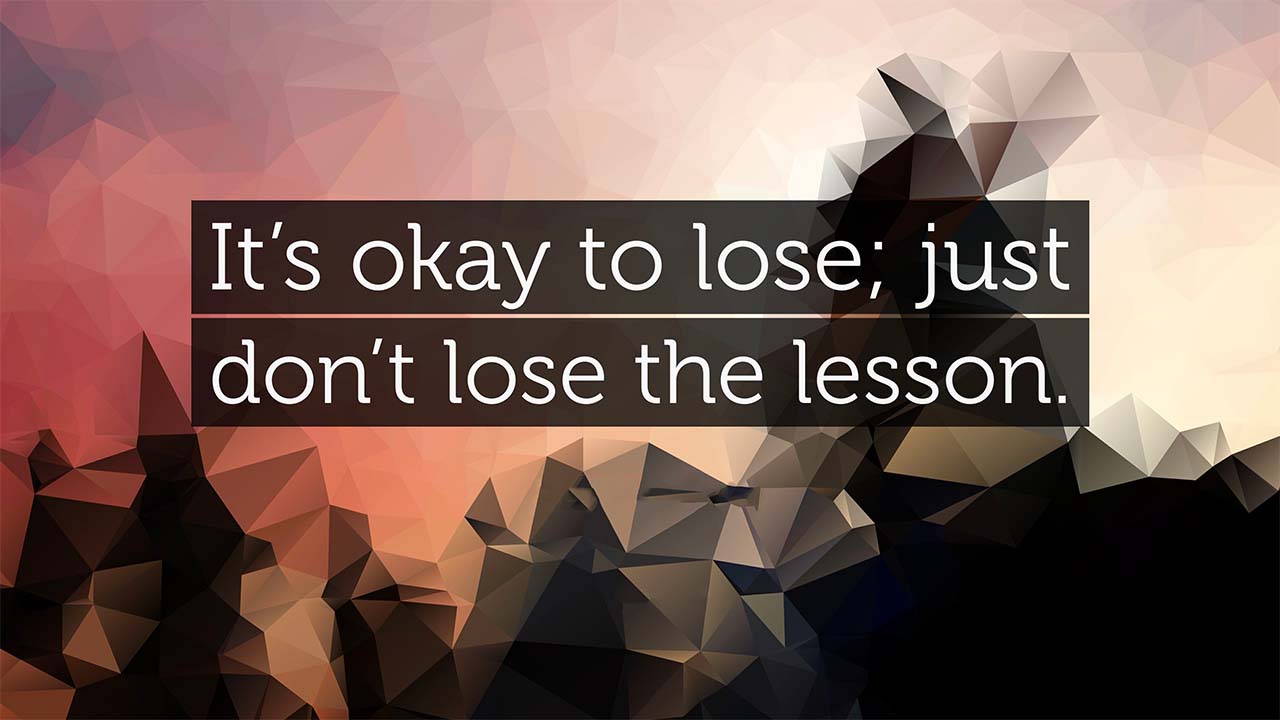When I wake up during the evening, regardless of why, my mind goes from 0 to 1000 miles per hour in seconds.
It’s as if my mind does a quick scan on thoughts and memories and upcoming events, picks one or two and then proceeds to obsess about it to the point where it becomes… overthinking.
Overthinking: to think too much about something. To put too much time into thinking about or analysing in a way that is more harmful than helpful.

It’s something I think we’ve all done a little bit of but this lockdown thing we’ve all had to live through seems to have pushed the amount of overthinking we do to new, totally obscene and unsustainable levels.
Yes, it’s human nature and pretty normal to think things through when making a decision or evaluating a situation but it becomes overthinking when you can’t get out of your own head.
Some people can’t seem to turn their concerns and that little voice in their head off.
Have you been there?
Have you worried about the future, making horrible predictions about unlikely events that haven’t even happened yet?
Have you ruminated and obsessed about the past, beating yourself up about “should haves” and “could haves”?
Have you overthought a tough decision you have to make and then watch mini trailers of all the options and potential outcomes in your head?
Have you ever been so consumed by actions you have to take that you end up being so afraid to make the wrong decision an then take no action at all?
Now whether you’re a chronic overthinker or you need to make a really hard decision in your life, I’m sure you’ve experienced sleepless nights where the voices in your head just won’t… switch.. off.
Overthinking can, on a long enough time scale, increase your stress levels, cloud your judgement and also increase symptoms of anxiety and depression.
A therapist or life coach –depending on the reason for your overthinking – can teach you skills that will help you stop obsessing, ruminating, and dwelling on things that aren’t helpful and they can also help you identify coping strategies that work for you which could include mindfulness or physical exercise.
Now sometimes in life thinking about something a lot may be beneficial in that it can help plan for potential outcomes and strategise ways around a challenge or situation.

Overthinking is very, very different though.
It isn’t rational, and it isn’t part of a larger strategy or well thought out plan and can even interfere with your problem-solving abilities.
Overthinking has been shown to cause excessive, harmful activity in your brain and one Harvard study found that this excessive brain activity depletes essential proteins in the body which in turn may actually shorten the human lifespan.
There can also be major psychological consequences to overthinking which can lead to anxiety, binge drinking or eating, depression and even self-harm.

It may seem pretty obvious and we probably all know this, but learning how to not overthink is good for both your body and your mind.
Now maybe, if you’re prone to overthinking, a starting point would be to try and narrow down the type of overthinking you are doing because the more we understand something, the easier it becomes to try and reframe the way we feel and think about it.
Here are 5 broad types of overthinking that we do and a few suggestions of how to try and manage it.
- Mental chatter
Your head is just busy – too busy – and the more you try and slow your head down, the more thoughts come rushing in. In this instance you should try and focus on some or other activity in order to ‘change the channel’ and give your head something to focus on.
You could try:
- Physical exercise.
- Engage with someone in a conversation topic that interests you.
- Go somewhere that feeds your heart and soul.
- Reading too much into things
This happens when a minor issue arises and your imagination goes into total overdrive, imagining all the (mostly non-existent) disastrous outcomes that may ensue. The first step – and this can be hard AF – is to try and acknowledge that your thoughts may be a exaggerated towards the negative.
You could try:
- Replace “what if” with “we’ll see”, which is a way of moving past analysis paralysis towards acceptance.
- Reading minds
This is the very common problem a lot of us struggle with and where you constantly try to predict what other people are thinking about you.
You could try:
- Focus on what’s important as you will think less about your individual goal and more about the bigger picture.
- Remind yourself that most people don’t actually pay attention as they are probably feeling the same as you.
- Get off social media for a while. Trust me on this one.
- Do something that makes you feel… amazing and alive!
- Getting stuck in the past
This type of overthinking involves incessantly dwelling on the past and mistakes you made or continuously replaying a time you got hurt, or hurt someone, over and over in your mind.
You could try:
- The biggest thing here is to be aware of your thoughts.
- You need to make peace with the fact that, whatever it is, it’s done and that you can’t change it.
- You need to try and get to a realisation that you’re thoughts aren’t productive and that some movies don’t need to be rewatched again and again.
- You can chat to a life coach to work on ways to reframe your thoughts into ways that you can use to the past as a foundation to grow and move on.
- Worrying about the future
This is where you continuously stress and panic about ‘bad’ things that might happen. In today’s world where we are bombarded with words like pandemic, variant, death, vaccinations, quarantine and social distancing all the time this type of overthinking is very common.
You could try:
- Start focusing on living in the moment.
- Stop listening to the news and get off social media.
- Practise mindfulness, which does take time and effort, but will reduce overthinking.
- Do something that makes you feel alive, laugh and create moments where you forget about everything else even if just for a short while.
- And then do it again.

Now believe me, I’ve done my fair share of overthinking and it’s taken a lot of very honest, and very hard, conversations with myself to get to the point where I felt a little bit more in control.
You know how?
Questions.
You have to ask yourself the correct questions in order to affect a change of behaviour and headspace.
It’s no good asking things like “why do I overthink?” over and over or “why can’t I just stop thinking so much?”
Those questions won’t do anything and will only trigger further mental rumination.
You should focus on proactive, solution-oriented questions which will allow you to make changes to your own behaviour and help you to move forward in a healthier manner.
For example, instead of asking “why don’t people like me?” you could ask “what energy am I projecting that might make people not see the person I really am?”
Always remember that life happens for you, not to you.
Once you discover how to stop overthinking and live in the moment, you’ll be happier and have a way more positive influence on those around you and this is where a life coach can be the catalyst for the change you are looking for.
Even your negative emotions can lead to positive outcomes but that means you will have to focus on the positive, but positivity and how some people struggle to break a toxic, negative mindset is a discussion for another time.
If you’d like to get in touch and chat about overthinking, the types of questions you could ask yourself or share how you personally cope with overthinking, please get in touch.
My Into 2022 coaching program could be just the thing you need to help you to understand overthinking and give you ways to recalibrate your own mindset and headspace as we head into 2022.
To find out more or to book a free 30 minute discovery session you can click here as I still have a few time slots available.
I’d love to hear from you. 😊
For now though, go and do something that makes you forget about everything else and just live in the moment! 🙏🏼
G.









